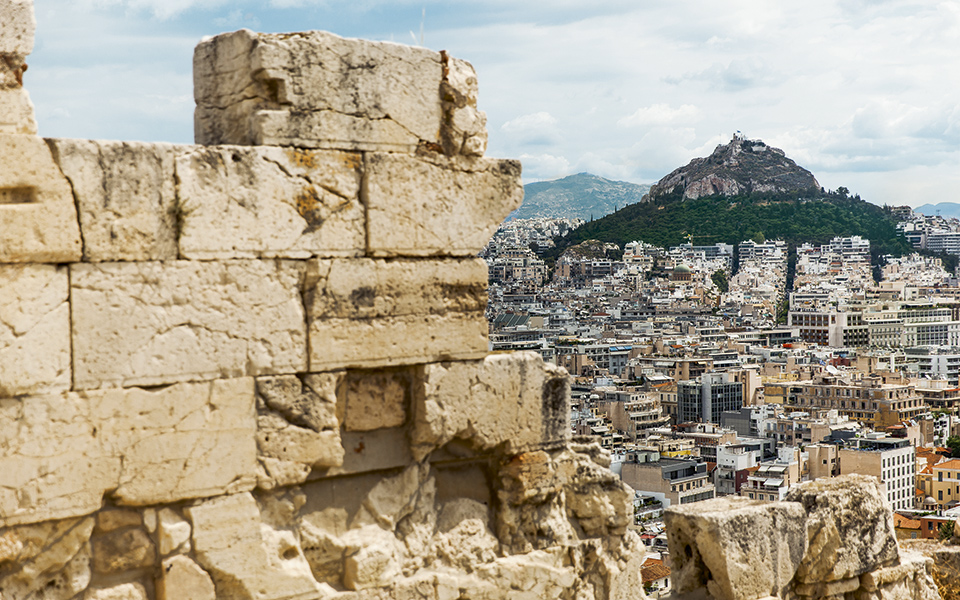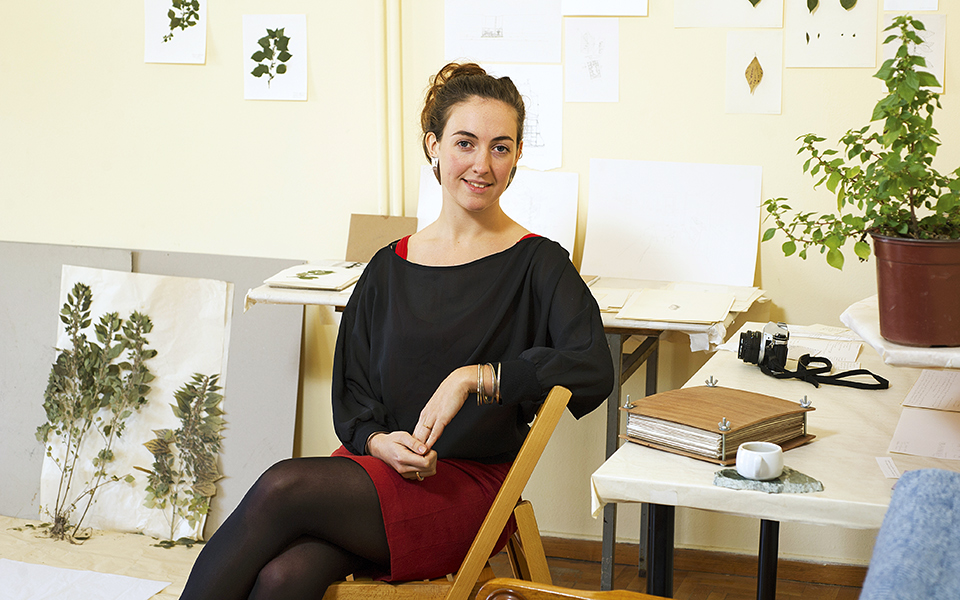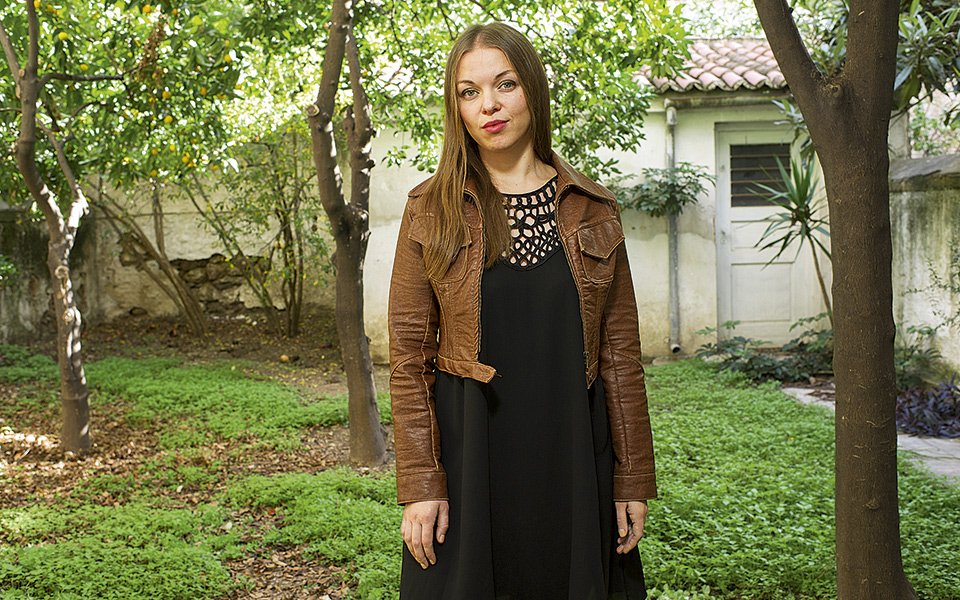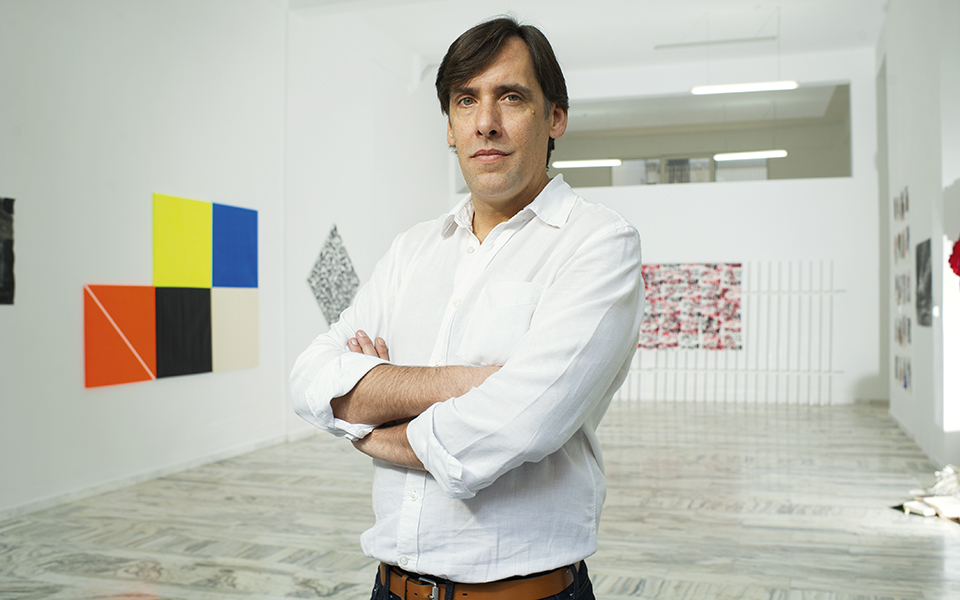The Averoff Museum: Metsovo’s Cultural Legacy
At 1,160m, Metsovo blends preserved mountain...

The contrast of old and new in Athens has made it a particularly attractive place to live for those from the art scene.
© Vangelis Zavos
It’s a strange paradox: while many Athenians are leaving the city to emigrate, more and more foreigners are choosing Athens as their new home. They are cultured, educated and often come from the arts scene. Athens has become a magnet for creative souls – artists have a tendency to be attracted to disaster, abandonment and dissolution. Truth be told, the capital has acquired a certain character because of the crisis.
And, as we know, when artists open their studios in an area, it instantly becomes fashionable. While Athens may not be set to become the next Berlin, foreigners seem to be impressed by the energy of the city, its chaotic architecture, the low prices and the feeling of freedom (or lawlessness, you could say) that prevails in Greek society.

Katriona Gallagher decided to move to Greece after exhibiting her work in the city the previous summer.
CATRIONA GALLAGHER | ARTIST
“The ‘O’ in the name is silent. My name is pronounced like Katrina.” The 24 year-old British graduate of the Edinburgh College of Arts moved to Greece last summer, following an invitation to participate in a group exhibition. She lives in an apartment in Kypseli, with an American musician for a roommate, who also decided to live in Athens.
She showed me her new series of drawings on the parietaria, a common plant belonging to the nettle family. “I’ve researched it for about two years now,” she reveals. “I noticed it when I first came to the city. It was everywhere: in the cracks of sidewalks, the ruined houses, archaeological sites … But no one knew its name. I am interested in looking at how this plant is connected to the sense of abandonment.”
As is often the case, outsiders end up observing and shedding new light on things that locals take for granted. “Athens inspires me. Walking around the city, I feel like I’m working.” Architecture plays a role in her work, so what does she think of the layout of the city? “Although it is problematic, I find the urban explosion that occurred in Athens in the 1960s and 70s amazing. It is appalling that old buildings were demolished to build new ones. It’s a completely different experience from where I come from. In Britain, anything old is protected. Living here, I realized that when you live in a society different from yours, it makes you question the norm.”
Gallagher makes a living through giving English lessons. What does she like in Athens? “The view from Lycabettus Hill. I’m almost shocked every time I see this disorderly, white, built area – so concrete, so heavy, so compact.”

When Becky Campbell joined a residency program in Athens set up by a fellow artist, she found the pull of the city too big to return to her old life.
BECKY CAMPBELL | ARTIST
During her final year at Edinburgh College of Art, she was approached by a fellow student, Augustus Veinoglou from Greece, who told her that he was thinking of organizing a residency program in Athens and asked if she was interested in taking part. She agreed, and in 2012 she found herself in the Greek capital as the first guest of the Snehta Residency program.
“When I finished the two-month stay, I returned to Edinburgh, but I was unable to adapt to my old life again,” recalls the 30-year-old Scottish artist, “so, after two weeks I booked a one-way flight to Athens. Something keeps me here.”
What, precisely? “I found a place that makes me feel alive. There is a strange energy here. The Athenian art scene is small, but it is active. At first I did not understand the works of the Greeks, but after learning more about Athens and studying Greek history, I could better interpret the meaning of the exhibitions.”
After a six-month course at the University of Athens, Campbell now speaks some Greek and runs the artists’ residency program in Kypseli with Veinoglou. She lives in a house in Kallithea, in central Athens, which she shares with another artist.
Everything in the house resembles an art installation. Above the desk, tiny fragile items are positioned – from above it looks like an exhibition from a natural history museum. “In my works there is the concept of ambiguity, maybe that’s why I like Athens so much.” The house may not have heating (“Don’t forget that I’m Scottish,” she responds when asked how they manage in winter), but it has a beautiful courtyard with trees. “I love this garden. It has pomegranate, oranges, lemons.” And what’s her favorite attraction? “The National Archaeological Museum,” she replies.

Art dealer and artist Lee Wells arrived in Athens from the US after following his heart.
LEE WELLS | ARTIST, ART DEALER
Lee Wells grew up on a horse farm in Ohio. After studying psychology and fine arts in Chicago, in 2000 he moved to New York where he worked as a curator, gallerist and art dealer. A few months ago he opened a showroom in the central Athens district of Neos Kosmos, and continues to be in charge of an art gallery in Manhattan.
“A few years ago I wanted to devote myself again to my art. But I needed a place to work, and New York studios are expensive.” How did he come to Athens? “The gods called me,” he says, laughing. “I fell in love with a beautiful Athenian, who showed me a side of Greece that there was no way of knowing as a tourist, so I decided to create my life here.”
What are his first impressions? “Athens reminds me a bit of New York in the 1970s and 80s. Crude and at the same time refined. It is very difficult for an artist to live in large urban centers such as New York, Paris or London. You have no free time to produce art, because you have to work to survive. Or, if you manage, usually what you do is connected with how you can make money.”
“The world of art is too commercialized, and it shows in the products sold in galleries. I think that Athens is a very welcoming city for artists and has become a place of transit for important personalities from the international art scene. Now it is imperative for Greek artists to develop speed. I want to build a bridge between the American and Greek art scenes.”
At 1,160m, Metsovo blends preserved mountain...
Discover how Christos, Athens’ master souvlaki...
A nexus of Hellenic research, the...
A guided journey across Athens’ storied...